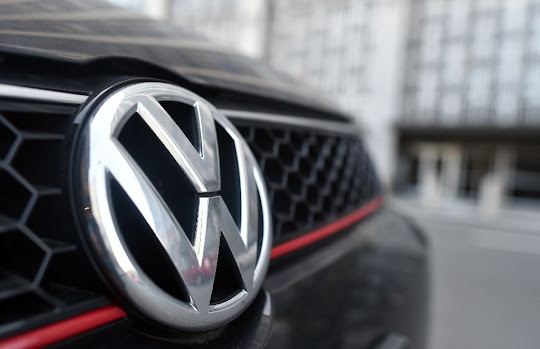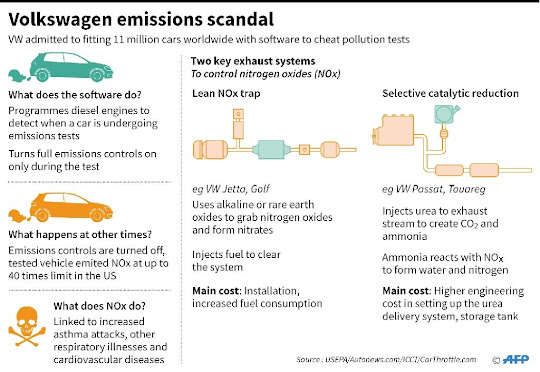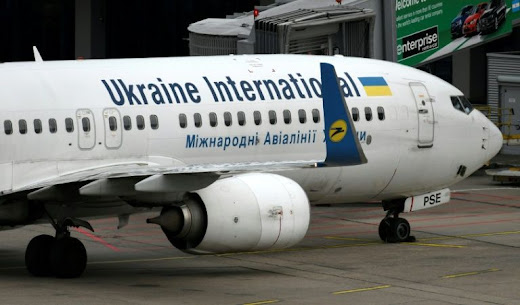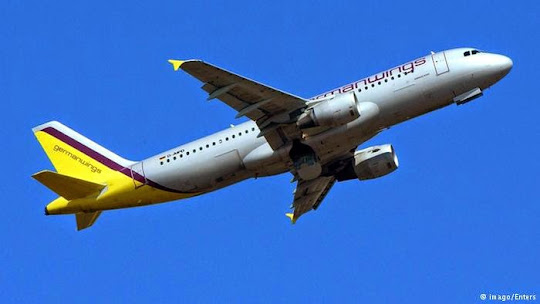Yahoo – AFP,
Odd Andersen with Simon Morgan in Frankfurt, 23 Sep 2015
 |
Volkswagen
chief executive Martin Winterkorn has headed the German
auto giant since 2007
(AFP Photo/Daniel Roland)
|
Wolfsburg
(Germany) (AFP) - Volkswagen chief executive Martin Winterkorn resigned
Wednesday over a pollution cheating scandal that has sparked a US criminal
investigation and worldwide legal action with unfathomable financial
consequences for the auto giant.
"I am
shocked by the events of the past few days. Above all, I am stunned that
misconduct on such a scale was possible in the Volkswagen Group,"Winterkorn
said in a statement issued by the carmaker.
"Volkswagen
needs a fresh start -- also in terms of personnel. I am clearing the way for
this fresh start with my resignation."
 |
Volkswagen
has admitted that as many
as 11 million cars are equipped with
software capable
of fooling pollution
tests (AFP Photo/Odd Andersen)
|
The stock
market barely flinched at the news.
Following a
two-day free fall that had axed 35 percent -- or 25 billion euros ($28 billion)
-- off the company's market value on Monday and Tuesday, the shares had bounced
back on Wednesday closing 5.19 percent higher at 111.50 euros after
Winterkorn's announcement.
Even if the
haemorrhage on the markets may have abated, Volkswagen, the world's largest
auto manufacturer by sales in the first half of this year, still faces a
growing tangle of legal threats after it admitted that as many as 11 million of
its diesel cars worldwide are equipped with software capable of fooling
official pollution tests.
In addition
to investigations from France to South Korea, public prosecutors in Germany
also said they were examining information and evaluating legal suits already
filed against the company by a number of private individuals to decide whether
to launch a full criminal inquiry against those responsible at VW.
Winterkorn 'takes responsiblity'
A day after
Winterkorn had offered his "deepest apologies", the 68-year-old said
he accepted his "responsibility for the irregularities that have been found
in diesel engines".
But he also
insisted: "I am not aware of any wrongdoing on my part."
His widely
predicted departure came after a meeting of the supervisory board's six-member
steering committee in Wolfsburg.
A new chief
executive is to be named Friday, and other personnel changes were expected, the
board said.
According
to the US authorities, VW has admitted that it equipped about 482,000 cars in
the United States with sophisticated software that covertly turns off pollution
controls when the car is being driven.
It turns
them on only when it detects that the vehicle is undergoing an emissions test.
With the
so-called "defeat device" deactivated, the car can spew pollutant
gases into the air, including nitrogen oxide, in amounts as much as 40 times
higher than emissions standards, said the US Environmental Protection Agency
(EPA).
The EPA,
which announced the allegations Friday along with California state authorities,
is conducting an investigation that could lead to fines amounting to a maximum
of more than $18 billion.
The US
Department of Justice has also launched a criminal inquiry led by its
environment and natural resources division, a source told AFP, speaking on
condition of anonymity.
 |
Volkswagen
Golf at the company's assembly plant in Wolfsburg, central Germany
(AFP Photo/Tobias
Schwarz)
|
The
California Air Resources Board, too, is investigating Volkswagen's pollution
violations.
New York
Attorney General Eric Schneiderman said he had launched his own probe of
Volkswagen and would work on it with prosecutors from other states across the
United States.
Billions
in provisions
Private law
firms are lining up to take on the German company, with a class action suit
already being filed by a Seattle law firm.
VW has
halted all diesel vehicles sales in the United States during the
investigations.
The scale
of the exposed deception expanded dramatically Tuesday when Volkswagen said
that as many as 11 million diesel vehicles worldwide may have the same
"anomalies."
The full
impact on the reputation of Volkswagen, which was founded in 1930 to build an
affordable family car, is hard to measure.
The scandal
has already hit the share price of other car makers, buffeting international
stock markets.
Volkswagen,
whose parent company also owns brands including Audi, Skoda and Lamborghini,
has set aside 6.5 billion euros in provisions for the third quarter to cover
the potential costs of the revelations.
While the
scandal has been restricted to Volkswagen so far, environmental protection
groups, particularly in Germany, suspect other car makers may be using similar
technology.
The
European carmakers' association ACEA said that while it recognised the gravity
of the affair, "there is no evidence to suggest that it's a problem across
the whole industry."
And the
German carmakers' federation VDA insisted that diesel engine technology itself
was not in question.
 |
A
Volkswagen Golf TDI diesel car undergoes an emissions inspection at a garage
in
Frankfurt, eastern Germany, on September 21, 2015 (AFP Photo/Patrick Pleul)
|
'Extremely troubling'
But the EPA
has said it will screen for defeat devices in other manufacturers' diesel
vehicles now on the road, although it declined to identify which brands would
be tested.
German
Transport Minister Alexander Dobrindt said a special commission of inquiry had
travelled to VW's headquarters on Wednesday.
France,
Britain and other nations have called for a Europe-wide investigation.
South
Korean officials summoned VW representatives for explanations on Tuesday,
saying tests would be started by "no later than next month."
The United
Nations has described the revelations as "extremely troubling."
The German
company is likely to face tough questioning in the US House of Representatives'
energy and commerce committee, which announced plans for a hearing in the
coming weeks.
Related Articles:

























